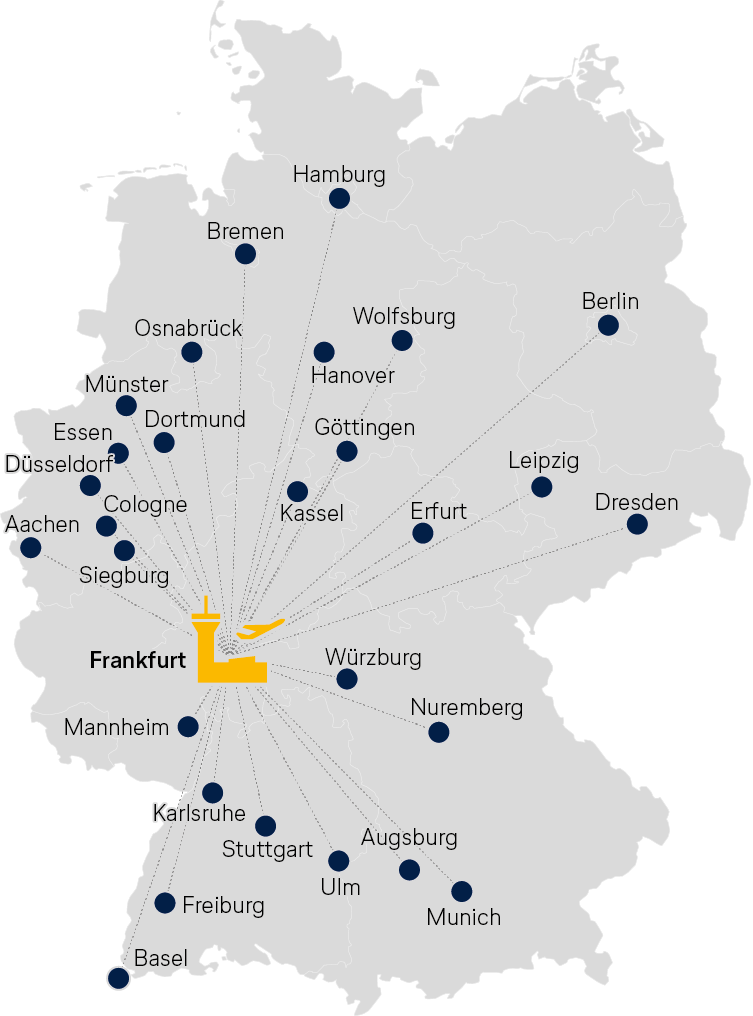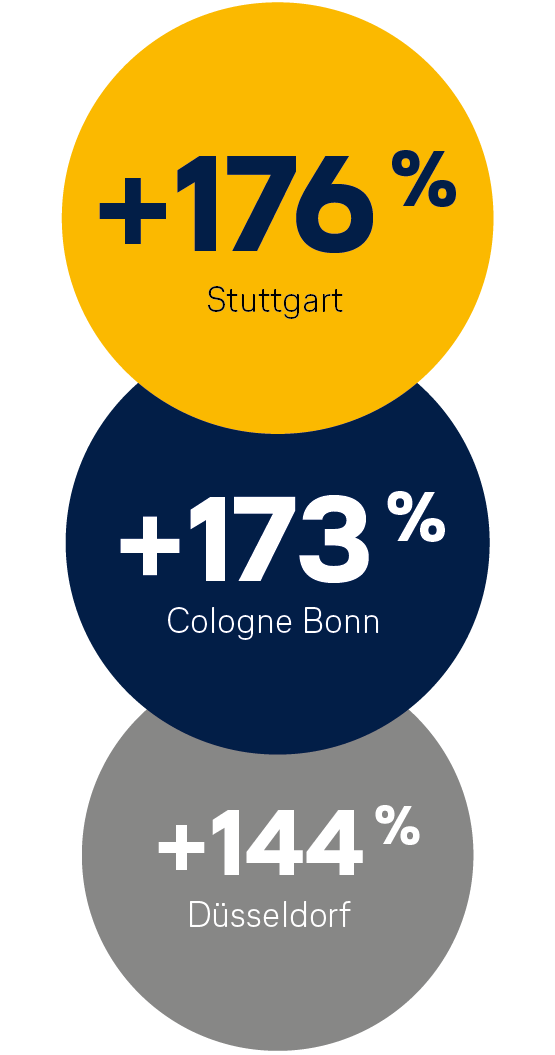Making airports more attractive
German airports face international competition. Anyone flying from Berlin to the USA or the Far East can change planes at numerous hubs – for example in Frankfurt or Munich, London or Istanbul. In addition to the price issue, fast security checks, efficient baggage reclaim and good connections to long-distance rail services are particularly important. There is still a need for action here at many German airports.
Security checks: offering modern technology and efficiency
Rising passenger numbers, staff shortages and inefficient processes often lead to long queues at security checkpoints. Computer tomography (CT) devices provide a remedy. They ensure greater security, offer convenience and save time. Travelers do not have to unpack laptops or liquids for screening. Security staff can check more than twice as many travelers in the same amount of time. German airports should therefore be equipped with modern CT scanners quickly. Until now, the Federal Police has been responsible for organizing aviation security checks at most airports. At many locations, however, it would be more efficient if the airport operator were directly responsible for the checks under the supervision of the federal authority. The airport knows the passenger volumes at its control lanes best, can deploy security technology and personnel accordingly and thus control the processes precisely.
Rising location costs make traffic at German airports more expensive
State-induced costs in particular have been rising for years. The German aviation tax was increased by up to 77 percent in 2021 – in the middle of the coronavirus pandemic – and by a further 20 percent in May 2024. Air traffic control charges in Germany have more than tripled since 2019, and aviation security fees were raised again by up to 50 percent as of January 2025. One thing is clear: structural problems must not be concealed by constant fee increases.
The price hikes are a burden on the competitiveness of Germany as an aviation location and jeopardize its connectivity. Yet aviation is the only mode of transport that finances its infrastructure completely independently. While the tax authorities spend several billion euros on roads and railroad lines, the airports are largely paid for by the airlines, with around six billion euros in fees and charges each year. The German government urgently needs to change course when it comes to location costs at German airports. A first step would be to abolish the aviation tax.
Optimizing ground handling – for example using AI
Checking in and boarding passengers, handling baggage, cleaning and refueling aircraft, providing catering and pushback vehicles: Ground handling comprises many tasks. How well they are carried out has a direct impact on the travel experience – see lost suitcases or delays due to staff shortages.
This makes it all the more problematic that airlines at German airports can generally only choose between two ground handling service providers, which are determined in advance by an authority. This is not the case in any other industry. In the interests of their customers, airlines need more choice and a greater say in the selection of ground handling service providers. Processes on the apron that have remained the same for decades (such as baggage transportation) should be improved using innovative technologies. For example, AI-supported cameras could analyze and optimize handling processes, while loading robots could significantly reduce the workload of employees in the baggage area. This is also important because fewer and fewer people want to do this heavy work.
Connecting airports to the long-distance rail network
Airports must be easily and quickly accessible for travelers. As an alternative to domestic feeder flights, the Lufthansa Group, in cooperation with Deutsche Bahn, offers the “Train to Flight” service. For example, Lufthansa connects Frankfurt Airport, one of the most important European hubs, with 28 train stations. A similar connection would also be desirable for the Munich hub, but there is no ICE connection there. A remedy is urgently needed. Germany must connect its hubs to the long-distance rail network.
Train to Flight
Lufthansa Express Rail offers ICE feeder connections to Frankfurt Airport from 28 cities – with one ticket and guaranteed transfer.
Maintaining airport operating hours
The current operating hours at German airports take into account the needs of local residents and the interests of travelers and businesses alike. Operating restrictions should also be rejected in view of Germany's export-oriented economy. This is because freight flows are based on global, end-to-end organized supply chains. While airports such as Istanbul, New York JFK and Dubai can operate around the clock, this is only permitted at five locations in Germany – and it must at least remain that way.



